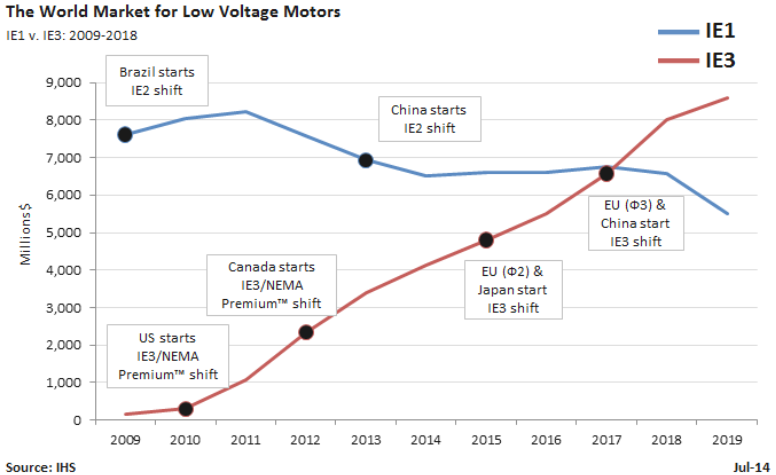Trend for high-efficiency ‘environmental’ motors
Concern for the environment has long been seen as a luxury of the West but a CWIEME Berlin seminar by global analyst Wilmer Zhou now points to a trend for high-efficiency ‘environmental’ motors in emerging economies too.
Ever since the first energy efficiency regulation for electric motors powered by the grid was introduced by the US government in 2002, the impact of standardisation on markets, product design and manufacturing methods has proved a hot topic of discussion. Indeed, this year’s CWIEME Berlin, taking place across six halls at the Berlin Messe exhibition grounds on 5th to 7th May, will feature no less than seven expert-led seminars on the subject of measuring and improving efficiency to meet tightening standards.
“In 2015 we have reached a point where all manufacturers across the globe are concerned about standardization,” says Wilmer Zhou, Senior Analyst, IHS Technology in Shanghai. “China published its first motor efficiency regulations in 2012 and the few countries that have not yet followed suit, such as India and some south-east Asian states, will do so in the near future.”
However, this standardisation is not for the sake of keeping up with global leaders in the motor manufacturing industry. Rather, as Mr. Zhou suggests, it is driven by governments’ and end-users’ own fears for the environment.
“The global economy faces many challenges that might normally lead markets to be driven by cost. However, the fact that governments are placing ever higher demands on manufacturers to produce expensive energy-efficient motors shows that environmental protection is a higher priority in both developed and developing countries,” he says.
“In many developing countries, China in particular, there are air quality problems and improving the efficiency of electric motors has been identified as a key way of addressing the issue. At IHS we calculated that motor systems, including pumps, fans and compressors, consume as much as half of the electricity produced in the world each year. There is huge scope for environmental improvement here,” he adds.

Following his popular presentation at CWIEME Shanghai 2014, Mr. Zhou will bring his insights to Berlin this year in a seminar, entitled A state of flux – market transition and regulation: The impact of IE2 to IE5 efficiency transactions on the global electric motor and motor-driven market, on Wednesday 6th May, 11:50-12:30.
He will discuss the latest motor efficiency regulations and market trends in each region, for the benefit of machine builders and companies in the oil and gas and power generation sectors.
“The most important takeaway for visitors will be my forecast for the next two years, how economic challenges will impact world markets, and what opportunities there are for electric motor and motor systems manufacturers and there are many. However, in order for manufacturers to fully grasp them a lot of technical work still needs to be done, especially in developing countries,” he concludes.





